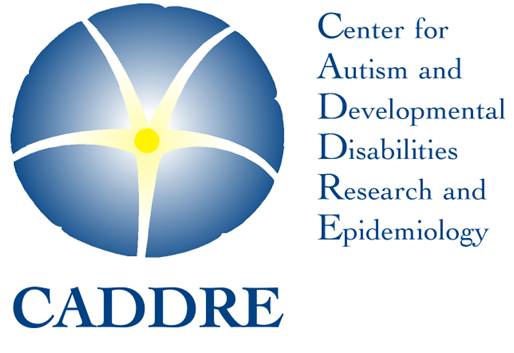Study handout
App.B.14 SEED II Study Handout.docx
Generic Clearance for the Collection of Qualitative Feedback on Agency Service Delivery
Study handout
OMB: 0920-0919
SEED
network logo


What do families get from participating
in the Study to Explore Early Development?
Although the primary goal of SEED is to learn about genetic and environmental risk factors associated with autism spectrum disorders, all families who participate can learn a great deal about their child’s development, regardless of whether the child has a delay or is typical. Developmental researchers at the Kennedy Krieger Institute conduct the play-based assessments with each child in the study, and parents receive a written report that briefly summarizes their child’s performance, including whether the child’s abilities are as expected for their age. Many families tell us they gain a deeper insight about their child’s development and have shared the report with their healthcare and educational providers. Through participation in the study, families get fast, prioritized appointments at the clinic for these high-demand, expensive assessments, which they receive for free. In fact, SEED compensates families $200-$325 for their time, depending on which of the below assessments are needed:
Child Behavior Checklist: A parent questionnaire that assesses a child’s behavior and social abilities. Given to all participants.
Mullen Scales of Early Learning: A child assessment that measures four areas of development: fine motor, visual reception, receptive language, expressive language. The Mullen also gives an early learning composite score, an overall assessment of the child’s learning abilities. Given to all participants.
Vineland Adaptive Behavior Scales: Parent questionnaire that assesses a child’s communication, daily living, socialization, and motor skills. Given to parents whose children meet certain scores on either the Mullen or a screening called the Social Communication Questionnaire (SCQ).
Autism Diagnostic Observation Schedule (ADOS): A play-based child assessment that is used to look for signs of autism spectrum disorders. Given to children based on their SCQ score.
Autism Diagnostic Interview-Revised (ADI-R): A parent interview that is useful for identifying features of an autism spectrum disorder, and distinguishing it from other developmental disorders. Given to a parent based on their child’s SCQ score.

![]()
![]()
Appendix B.14 SEED II Study Handout Version 1, 12/5/2011
| File Type | application/vnd.openxmlformats-officedocument.wordprocessingml.document |
| Author | Michelle Landrum |
| File Modified | 0000-00-00 |
| File Created | 2021-01-31 |
© 2026 OMB.report | Privacy Policy